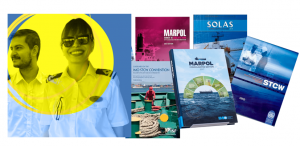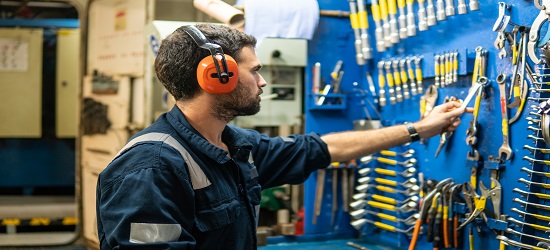International Maritime Organization (IMO) conventions provide the framework for the safe, secure, and efficient operation of ships.The IMO (International Maritime Organization) is a specialized agency of the United Nations responsible for regulating international shipping and maritime trade. Its mission is to promote safe, secure, and environmentally sound shipping worldwide by establishing standards, codes, and guidelines for shipping operations, as well as providing technical assistance to member states. The organization aims to ensure that the shipping industry operates in a sustainable and responsible manner, and to promote cooperation and collaboration among its members. For commercial ship engineer officers, knowledge of these conventions is essential to ensure compliance with international standards and regulations.

- Commercial ship engineer officers must be knowledgeable about several International Maritime Organization (IMO) conventions to ensure the safe and efficient operation of vessels. The International Convention for the Safety of Life at Sea (SOLAS) is one of the most important conventions, establishing minimum safety standards for ship construction, equipment, and operation. Commercial ship engineer officers must be familiar with SOLAS requirements related to machinery, electrical installations, fire safety, and life-saving equipment.
- Another crucial convention for commercial ship engineer officers is the International Convention on Standards of Training, Certification, and Watchkeeping for Seafarers (STCW). The STCW convention sets minimum training and certification standards for seafarers, including ship engineers. To ensure safe and efficient vessel operation, commercial ship engineer officers must hold STCW certification to demonstrate their competence.
- The International Convention for the Prevention of Pollution from Ships (MARPOL) establishes standards for preventing air and water pollution from ships. Commercial ship engineer officers must be familiar with MARPOL requirements for controlling emissions, discharges, and handling of pollutants, including oily water separators and sewage treatment plants.
- The International Convention on Load Lines (LL) sets minimum requirements for the maximum load line that ships can safely carry. Commercial ship engineer officers must ensure that the vessel complies with the LL requirements for stability and safety.
- Finally, the International Convention on Tonnage Measurement of Ships (ITC) establishes rules for calculating a ship’s tonnage, which is used for safety and commercial purposes. Commercial ship engineer officers must be familiar with the tonnage measurement rules and ensure compliance with the vessel’s registered tonnage.
In addition to these conventions, commercial ship engineer officers must also be familiar with other IMO instruments such as the International Code for Fire Safety Systems (FSS Code), the International Gas Carrier (IGC) Code, the International Safety Management (ISM) Code, and the International Ship and Port Facility Security (ISPS) Code.
To ensure safe and efficient ship operations, commercial ship engineer officers must have a thorough understanding of these conventions and the associated regulations. Continuous training and education are necessary to stay up-to-date with the latest standards and requirements. Additionally, proper record-keeping and documentation of compliance are essential to demonstrate adherence to the conventions and regulations.

